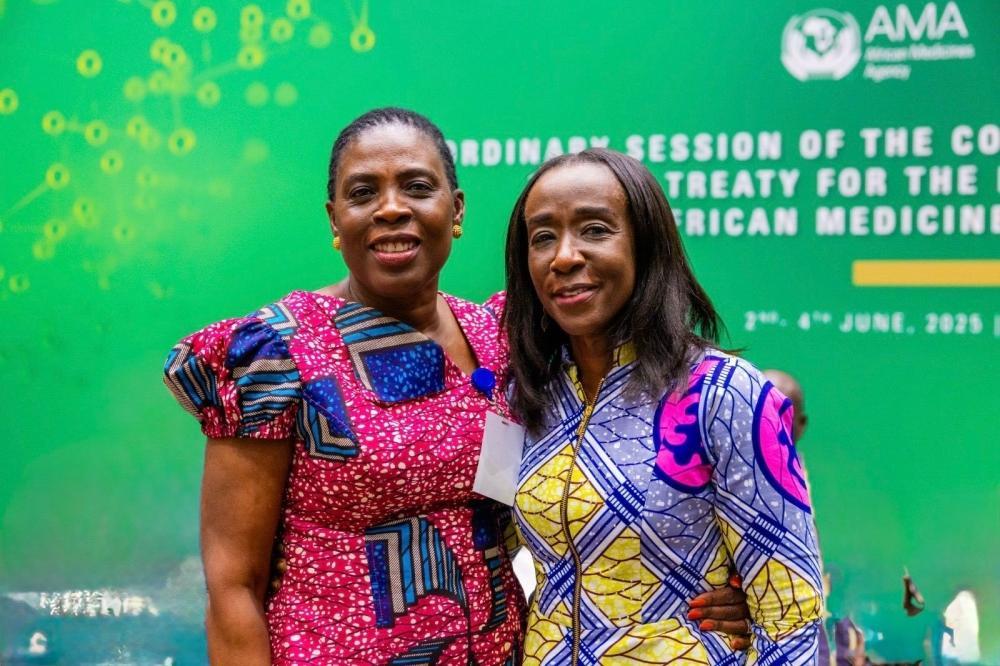Richard Bishumba
Africa-Press – Rwanda. The African Medicines Agency (AMA) will be officially launched this week in Mombasa, Kenya, at the 7th Conference of African Medicines Regulatory Authorities (SCOMRA), which gets underway Tuesday, November 11.
The launch marks more than the creation of a new health institution, it marks a test of Africa’s seriousness about her own health sovereignty.
For decades, Africa has relied on others to tell us what is safe, effective, or worth producing. Our national regulatory systems have been uneven, fragmented, and underfunded – a reality that has made Africa the world’s easiest market for substandard or counterfeit medicines. The AMA promises to change that by harmonizing drug regulation, centralizing approvals, and creating a unified front against the business of bad medicines.
But beyond the fanfare, the success or failure of the AMA will depend on one thing: whether Africans will fund it and defend it as their own.
The launch of the AMA has been a long time coming. The idea was first proposed over a decade ago. Since then, it has survived slow ratifications, political changes, and a global pandemic. That it is finally coming to life is both a relief and a reminder that Africa can act collectively when urgency outweighs hesitation.
Once operational, AMA’s continental authority means a medicine approved in one country could be recognized across others – reducing duplication, speeding up access, and making it easier for innovators and manufacturers to work across borders. This is exactly the kind of structural efficiency Africa’s health systems need.
Why Rwanda is the right home
It is no coincidence that Rwanda was chosen as host. Kigali has built a reputation for disciplined governance, regulatory efficiency, and continental leadership in health innovation.
From hosting the African Pharmaceutical Technology Foundation to welcoming the International Vaccine Institute’s Africa office, Rwanda has shown that it can turn big continental ambitions into functioning institutions.
The AMA’s presence in Kigali will benefit from that same culture of precision and accountability.
The dependency dilemma
Still, even as AMA launches, the early signs of funding dependency are creeping in. The European Medicines Agency (EMA) and the European Commission have already committed €10 million to support the AMA’s establishment.
Let’s be honest: this is not how continental independence begins.
I am not against collaboration with partners. But when critical African institutions depend on external funding to take their first breath, it sends a worrying message.
If we can spend billions importing medicines that we could regulate, produce, or even export, surely, we can find a way to sustain the one institution designed to make that possible. African governments must make room in their budgets for AMA – not as charity, but as a strategic investment in the continent’s health security and economy.
Talk of ‘African solutions’
Every African leader speaks of self-reliance. Yet too often, when the time comes to act, we look outward for validation or funding. The AMA should be the test case that breaks that cycle.
A regulator funded and guided primarily by Africans would not only build confidence in our medicines but also in our ability to lead. It would show that Africa is done renting legitimacy – that we can build and own systems that meet global standards without foreign supervision.
The organization represents a new frontier for African science, regulation, and accountability. It deserves full political will, accompanied by adequate funding. If Africa can fund its football tournaments, political summits, and militaries, it can certainly fund its medicines regulator.
The AMA promise is immense, but its credibility hinges on whether we treat it as ours or as another donor-funded project.
Source: The New Times
For More News And Analysis About Rwanda Follow Africa-Press






